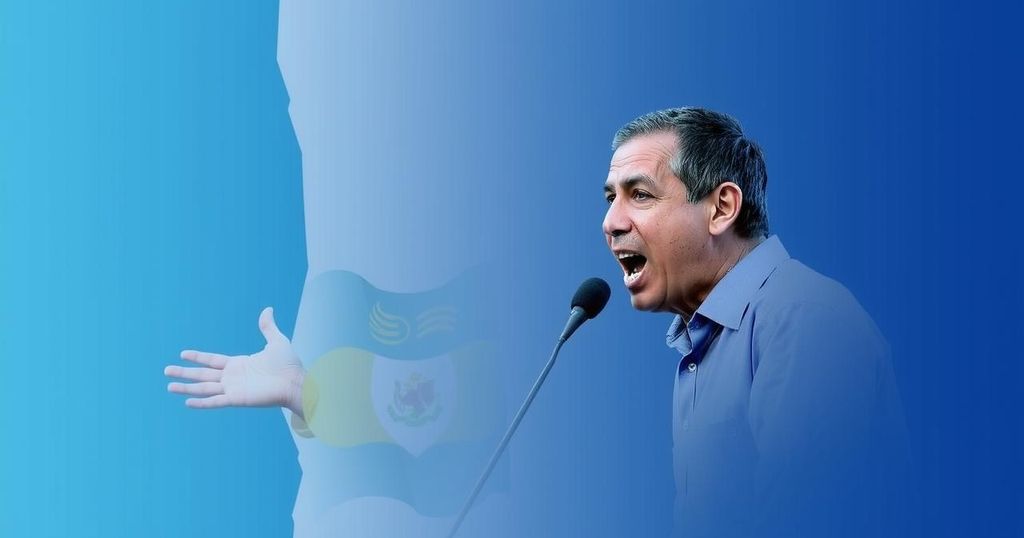Uruguay’s presidential runoff saw conservative Álvaro Delgado compete against opposition candidate Yamandú Orsi after a tight first vote. Apathy among voters reflected dissatisfaction with both candidates, while issues such as crime and economic stability dominated discussions. The election outcome carries significant implications for the country’s future, with both candidates pledging a cooperative political approach.
Uruguay recently concluded its presidential elections, witnessing a highly competitive second round between ruling conservative Álvaro Delgado and opposition candidate Yamandú Orsi of the Broad Front. Following an inconclusive first vote in October, both candidates rallied significant support, leading to an evenly matched runoff. The elections raised questions about voter apathy, as many citizens expressed dissatisfaction with the candidates, while escalating concerns over crime and economic stability dominated their campaigns.
As polls closed, the results were anticipated anxiously, with analysts predicting a complicated counting process reminiscent of the disputed election in 2019. Despite the candidates’ varying approaches toward fiscal policy and social issues, polling indicated a near tie, suggesting a fractured electorate. Delgado, building on the legacy of outgoing President Luis Lacalle Pou, emphasized law and order, while Orsi aimed to resonate with voters’ progressive ideals and historical ties to the Broad Front’s past reforms.
Both candidates pledged to collaborate post-election to ensure political stability, marking a proposed transition marked by unity rather than division. The election outcome is pivotal, as it may shape Uruguay’s political, economic, and social trajectory for years to come. Citizens await the final counts with mixed emotions, reflecting broader trends of indecision that have characterized recent electoral actions in the region.
The context of this election is critical to understanding Uruguay’s political landscape. Following a first round of voting where no candidate secured a majority, a runoff was necessitated between the ruling conservative coalition and the left-leaning Broad Front. This situation underscored a shift in voter sentiment, influenced by pressing issues such as rising crime rates and the country’s economic stability. The 2019 elections had previously established a fragile balance in Uruguay’s power dynamics, which further complicates current electoral challenges.
In summary, Uruguay’s recent election resulted in a tightly contested runoff that captured the electorate’s complex sentiments about governance amid pressing socio-economic issues. With both candidates emphasizing different strategies to address public concerns while promising cooperation if elected, the outcome remains pivotal for Uruguay’s future political cohesion and policy direction. The anticipated close results reflect a society grappling with indecision and a desire for effective governance.
Original Source: gazette.com






